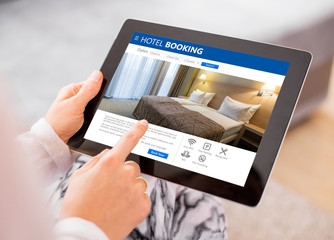
What Is the Use Of TRAVEL CRM
About the Travel CRM: Streamlining the
Travel Industry
The travel industry is fast paced, highly competitive, and relies
heavily on building strong customer relationships. In such a dynamic
environment, having a robust Travel Customer Relationship Management (CRM)
system becomes essential. A Travel CRM is specifically designed to address the
unique challenges faced by travel agencies, tour operators, hotels, and other
businesses in the travel sector. It offers a range of features and
functionalities tailored to streamline operations and enhance customer
satisfaction. In this article, we will delve into the world of Travel CRM and
explore its benefits and key components.
What is a Travel CRM?
A Travel CRM is a specialized software solution that helps travel
industry businesses manage their customer interactions, bookings, sales
processes, and overall operations. It centralizes customer data, streamlines
workflows, and provides valuable insights to improve customer service, increase
sales, and optimize marketing efforts. By leveraging the power of a Travel CRM,
businesses can deliver personalized experiences, drive customer loyalty, and
stay ahead in a highly competitive market.
Key Features and Functionalities:
1. Customer
Profile Management: Travel CRM systems allow businesses to store
and manage comprehensive customer profiles. This includes personal information,
travel preferences, booking history, loyalty program details, and communication
preferences. Having a 360-degree view of customers helps businesses tailor
their services to individual preferences, provide personalized recommendations,
and deliver exceptional customer experiences.
2. Booking
and Reservation Management: Travel CRM platforms offer features to
manage bookings and reservations efficiently. Businesses can track and manage
the entire booking process, from initial inquiries to final confirmations. Integrated
calendars and booking systems ensure that travel agents have real-time
availability information and can quickly make bookings, minimizing errors and
enhancing customer satisfaction.
3. Travel
Itinerary Creation: A Travel CRM enables businesses to create
and manage detailed travel itineraries for their customers. Itineraries can
include flights, accommodations, transfers, activities, and more. Travel agents
can collaborate with customers, make adjustments in real-time, and provide a
seamless and personalized travel experience.
4.
Communication and Collaboration: Travel CRM systems facilitate
seamless communication and collaboration among travel agents, customers, and
suppliers. Integrated email, messaging, and chat features enable efficient
communication, ensuring prompt responses to customer inquiries, updates, and
changes. Collaboration tools allow teams to work together effectively, leading
to improved productivity and customer service.
5. Supplier
Management: Travel CRM platforms often include features to manage
relationships with suppliers such as airlines, hotels, car rental companies,
and tour operators. This functionality enables businesses to maintain supplier
contracts, access real-time inventory and pricing information, and efficiently
collaborate with suppliers to secure the best deals for their customers.
6. Sales and
Marketing Automation: Travel CRM systems help automate sales and
marketing processes. Businesses can automate lead management, follow-ups, and
email campaigns, ensuring that potential customers receive timely and relevant
information. By leveraging automation, travel businesses can streamline their
sales funnel, increase conversions, and drive revenue growth.
7. Reporting
and Analytics: Travel CRM platforms offer robust reporting and analytics
capabilities. Businesses can generate reports on key metrics such as sales
performance, customer satisfaction, and marketing campaign effectiveness.
Analyzing this data provides insights for better decision-making, identifying
trends, and optimizing business strategies.
8. Mobile
Accessibility: With the rise of mobile technology, Travel CRM systems often
provide mobile applications or responsive web interfaces. This allows travel
agents to access customer information, bookings, and itineraries while on the
move, enhancing productivity and responsiveness.
Benefits of
Travel CRM:
Implementing a Travel CRM brings numerous benefits to travel industry businesses:
1. Enhanced
Customer Service: By centralizing customer data and
preferences, travel businesses can provide personalized recommendations, tailor
travel experiences, and deliver superior customer service, resulting in higher
customer satisfaction and loyalty.
2.
Streamlined Operations: A Travel CRM automates time-consuming tasks,
streamlines workflows






















